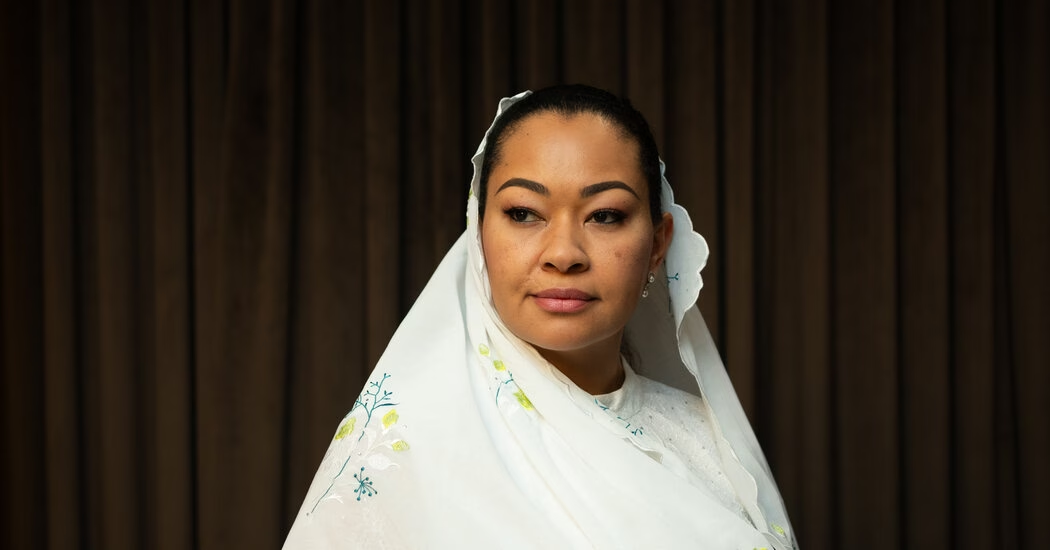When Nigeria’s third most powerful politician faced accusations of sexual harassment on national TV this year, a fierce backlash directed at his accuser swiftly followed. Natasha Akpoti-Uduaghan, one of only four women in Nigeria’s 109-seat Senate, found herself suspended for six months without pay in February for speaking out against Godswill Akpabio, the Nigerian Senate president. Following this, her constituents in central Nigeria began a campaign to oust her from her position.
This ordeal has thrown a harsh light on the sexism faced by female politicians in Nigeria, as well as the risks they face when exercising political power in a nation where women hold very few seats. Despite being Africa’s most populous country and its second-largest economy in sub-Saharan Africa, Nigeria boasts the lowest representation of women in Parliament on the continent, ranking among the bottom five globally.
In response to her accusations, Mr. Akpabio, through a lawyer, denied having made any sexual advances and chose not to engage in an interview, citing ongoing legal proceedings. Obiageli Ezekwesili, a former education minister, called this a “classic abuse of power” where a woman is denied her right to be heard.
Ms. Akpoti-Uduaghan, elected in 2023, claimed that Mr. Akpabio made sexual advances towards her during a personal visit to his home and also at a hotel, suggesting a quid-pro-quo arrangement for sexual favors in exchange for political benefits. She initially chose not to publicly address the situation or to pursue legal action, aware of the prevailing attitude toward such complaints in Nigeria.
In the wake of this, Ms. Akpoti-Uduaghan faced continuous harassment and accusations of immoral conduct, a common tactic against women in Nigerian politics. She began avoiding certain areas of the Senate to dodge Mr. Akpabio’s advances. In February, her Senate seat was moved without her consent, and shortly after, she publicly accused Mr. Akpabio of harassment. Despite her public accusations, the Senate’s ethics committee, ruling on the dispute over her seat, not only suspended her but also dismissed her sexual harassment petition against Mr. Akpabio, citing procedural rules.
The political environment in Nigeria appears inhospitable to women speaking out against powerful figures, with Ms. Akpoti-Uduaghan receiving no public support from her female peers and Mr. Akpabio’s wife filing a defamation lawsuit. Analysts argue that women in Nigerian politics are part of a broader system of patronage, meaning taking a stand against a powerful man carries significant risks, potentially leading to political isolation or victimization.
Godswill Akpabio, closely aligned with Nigeria’s current president and a leading figure in the governing All Progressives Congress, stands accused by another public official, Joy Nunieh, of sexual harassment in 2020. Her allegations were backed by Atiku Abubakar, a former vice president and political opponent, who accused Mr. Akpabio of having a history of abusing women.
Despite widespread support from her local community, nearly half of the registered voters in Ms. Akpoti-Uduaghan’s district signed a petition last week pushing for her removal, signifying a pivotal moment in Nigeria’s continued struggle with gender representation in politics.
Nigeria has not adopted any quota systems like some of its continental counterparts, where women hold significantly greater shares of political office. In comparison with nations such as Kenya (25% female lawmakers), Senegal (40%), South Africa (nearly 50%), and Rwanda (world leader with 61%), Nigeria’s political landscape remains predominantly male-dominated.
Ms. Akpoti-Uduaghan vehemently defends her rightful place in the Nigerian Senate, emphasizing that a hostile political climate for women undermines the country’s democratic progress.
Source: https://www.nytimes.com/2025/04/05/world/africa/nigeria-sexual-harassment.html





